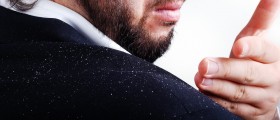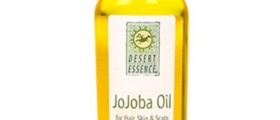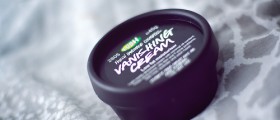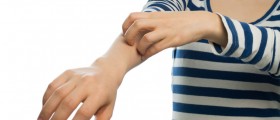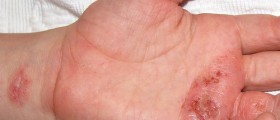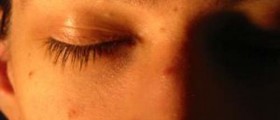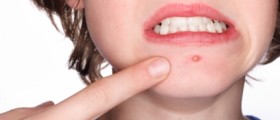I wonder if accutane could be related to seborrheic dermatitis for my son suffers for years now from severe form of acne. He was on minocin for years but have heard that accutane might clean his skin totally and has started with accutane but lately his scalp area and eyebrow area is covered by seborrhea. I think it has something to do with accutane so my question is could accutane be related to seborrheic dermatitis.
Loading...
Well I don’t know if accutane might cause the development of sebborheic dermatitis but on the second thought it is more than possible that your son have earned the sebprrheic dermatitis due to accutane use for I know that accutane may make the skin so dry than in some cases it is a good base for developing severe forms of dandruff. But also for he has acne he must be having oily skin and the condition is usually worse during summer period. Anyway the best seborrheic dermatitis is frequent hygiene that usually consists of using soap in removing oils from affected area and it is recommended to avoid sun exposure and outdoor activities. And as for the accutane I would never use it for his serious side effects and I think minocin is good enough in treating the acne and a s for the seborrheic dermatitis your son might try with some so called antifungal preparations such as azole agents, sodium sulfacetamide and topical terbinafine though studies shows that accutane also could be of help here but it is strongly recommended that accutane should be used as prescribed and under the frequent medical control.
Loading...
Loading...
Hope this helps any teenagers/parent thinking of accutane treatments.
Loading...
Most people with acne may also have seborrhea later in life, they are basically due to the same factors i.e. greasy skin and shedding skin. The only difference is that acne generally begins in your adolescent years while seborrhea doesn't usually start until you are well into your twenties or thirties.
Therefore it may seem as though you got seborrhea years after stopping accutane, but believe me, that is because your sebum production is out of control again after stopping the drug.
Many people think seborrheic dermatitis means your skin is dry since you get flaky scalp, eyebrows, cheeks etc. In reality dry skin and seborrhea are two different conditions due to different causes. As I've mentioned, seborrhea is due to too much oil production.
My recommendation is buying a shampoo containing coal tar (e.g. Neutrogena's T range), selenium sulfide (Selsun or Selsun Blue) or ketoconazole (Nizoral). It should be left in on the scalp, face or any part of the body so affected for 5 minutes, then rinsed off. Doing this daily will help get rid of the seborrhea. Once that's out of the way, continue to use it once or twice a week to prevent it from recurring. However you will still have to live with the oily skin.
There are oral medications that are used "off label" to treat severe seborrhea. One of them is roaccutane. Used in low doses e.g. 10 mg/day, it will regulate sebum production without as many side effects as going on a full dosage ( usually 0.5 mg - 1 mg/kg/day).
Hope that helps.
Loading...
I personally wouldn't recommend Accutane to anyone because (a) its an extremely powerful drug and (b) what I've experienced is abit too coincidental for my liking!
Loading...
hmmmm :/
Loading...
Loading...
I wouldn't be so hasty accusing Accutane (or some other Isotretinoin drug) for causing Seborrheic Dermatitis. Someone already wrote, that acne and SD are related.
I came here, because I'm thinking about trying a low-dose Isoretinoin treatment for my SD. I had acne when I was younger, and when I was coming to my thirties, developed SD. I haven't been treated with Isoretinoin.
You should, however think carefully before starting Isoretinoin treatment, especially high-dose acne treatment. It is definitely wery powerful treatment, an may have serious side effects.
(English isn't my native, just in case I wrote something weird)
Loading...
Glad I found this post... I also took 'R' for 6-12 months from the age of 26 to 27 for acne. I had the classic side effects whilst using it (dry lips, dry scalp etc), but I figured it was worth the struggle as the results were good.
Now, as a 31 year old female I am wondering what I have gotten myself into! I have spent the last 2 years in and out clinic's (GP & Dermatologists) getting tested and examined for a myriad of things ranging from 'hypothyroidism to testosterone imbalance - as possible causes for my chronic dermatitis (scalp). It was very strange as I'd only had two or three prior isolated incidents of dandruff in my entire life.
I am otherwise fit, healthy, and emotionally happy, with no family history of such scalp skin conditions. I inherited by bad skin from my Mum who is now in her 50's and still gets the odd patch of acne........... yet she has never had any scalp issues??
It seems as though I have traded one bad skin condition for a worse alternative - not something I would have done in hindsight.
Loading...
Hey I took acutane back in 1999 and used to take it alot to remove my acne now years later i got seborhia as well its crazy and i think acutane did cause it
Loading...
Loading...
Loading...
.
Loading...
Now, I'm in my mid-40's and about a year ago I started to get an odd breakout on my forehead. I thought it was a form of acne. No, its sebborheic dermatitis. We had been treating it with Protopic very successfully until a couple months ago. Its now around my scalp, sides of my nose, etc. I can bring it under control with other creams but if I even skip a day I start to breakout again.
I'm headed back to my derm. I wondered if a return to Accutane could clear my skin. I now wonder if my USE of Accutane when I was younger has lead to this condition. I never had dermatitis and I can't begin to tell you how "terrific" it is after finally winning the acne war to be this age and fighting a new foe on my face. Can my skin stay clear finally please?!
Loading...



